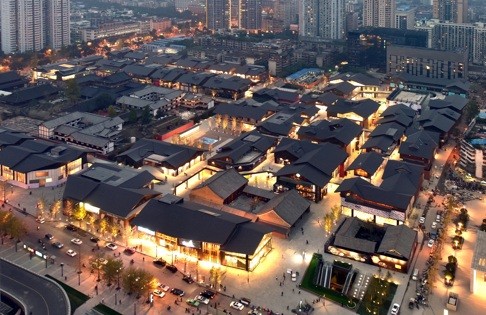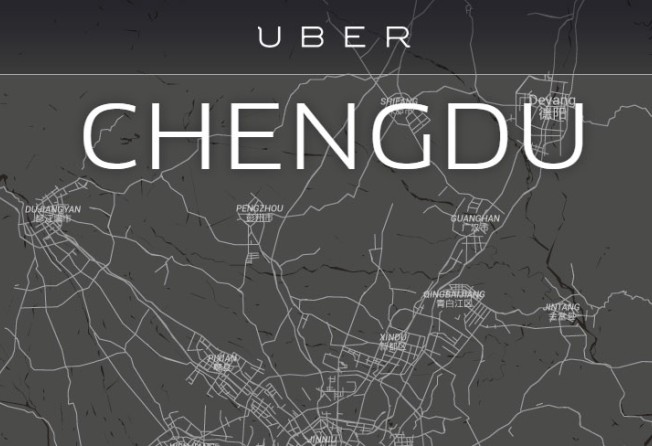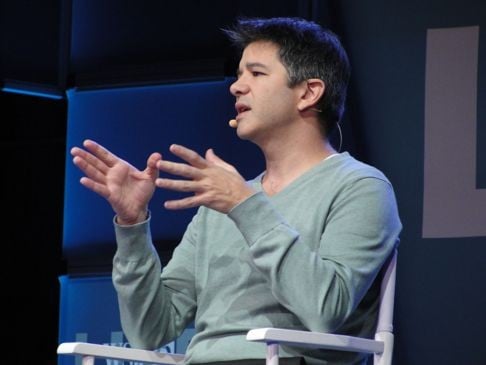
China’s happiest city Chengdu replaces New York to rank as car-hailing app Uber’s busiest globally
US company says Sichuan capital tops the table in terms of average daily no. of completed rides using the app among 340 cities

Known for its pandas, spicy hot pot, pretty women and billing as China’s happiest city, Chengdu in Sichuan province has racked up another claim to fame: it is car-hailing app Uber’s most successful city globally.
The San Francisco-based company said the sprawling metropolis in southwest China replaced New York several months ago in terms of the average daily number of completed trips made using the app. However it only released the information this week, citing a letter to investors from Chief executive Travis Kalanick dating back to May.
In the letter, Kalanick said that the three Chinese cities of Chengdu, wealthy Hangzhou in East China's Zhejiang province and Guangzhou in southern Guangdong had all eclipsed the Big Apple in terms of daily rides "in just nine months" of Uber setting up there. In contrast, the ap has been operating in New York for four years.
"Trips in China have grown at a 100 per cent monthly compound rate since the beginning of the year ... [and] will most likely surpass the US before year-end," he wrote.
"We are now creating over 100,000 new full-time-equivalent [driving] jobs per month across the country."
This level of volume puts Chengdu No. 1 among about 340 cities served by Uber, which announced in Beijing last month a roadmap to expand into another 100 Chinese cities within the next year. It launched a Chinese company, Uber China, in February 2014.

Uber has struggled in China this year amid a government clampdown against illegal taxi-hailing apps that has led to raids on several of its offices, including its Chengdu operations, police stings on its drivers and a widespread backlash from established taxi operators.
But it reportedly attracted extra funding of US$1.2 billion in July, at around the same time that its top rival in China, market leader Didi Kuaidi, raised about US$3 billion through its latest fundraising round, showing how investors have kept faith with both apps and a burgeoning market.
Considered the centre of West China, Chengdu is also a technology hub, home of several top-tier Chinese universities and scores of innovative start-ups.
A focus of the Chinese government’s Go West campaign to attract more companies and multinationals away from the country’s affluent east coast, Chengdu and the broader region now play home to numerous international car manufacturers including Volvo, Toyota and Volkswagen.
Among Chinese cities, Chengdu also stands as the second-biggest market for luxury goods in the country after Shanghai, said Zhang Yanqi, Uber’s general manager for northwest China.
The city is seeing growing ranks of wealthy citizens but many are characterised by a desire to remain low-profile and not flaunt their wealth, Zhang added.

Meanwhile, a combination of factors including how much time residents spend on recreation and leisure, as well as higher levels of disposable income due to relatively low property prices, recently saw Chengdu ranked as China’s happiest city.
Uber declined to reveal the number of completed trips made each day in the Chinese city, but said it believes it can further grow the total after it releases more products and services there.
Kalanick said on Tuesday that about 30 per cent of all the company’s business now takes place in China.
Previous media reports said Chinese cities make up at least five of Uber’s current top 10 busiest cities worldwide.
Wang Hong, a 30-year-old woman who lives in Chengdu, runs an e-commerce company in the city called Weilu, which sells local Sichuan cuisine and spicy snacks.

She became an Uber driver in February “out of curiosity” and said she found Uber to be a useful platform for promoting her online business.
“I am a lazy Uber driver, so I only make about 20 trips a month for fun and to promote my products to passengers,” she said.
“However, most of my colleagues who are in their 20s use Uber at least twice a day for commuting, leisure, going to karaoke, et cetera.”
She said most people in the city she spoke to talked with pride of using the app.
“I think Uber’s clients are actually my target market: young, middle-class Chinese who use apps and the internet every day,” she added.
Wang said she is planning a promotion to give passengers local delicacies from her company to celebrate Uber’s success in Chengdu.
Uber claims to control over 20 per cent of China’s car-hailing market, while market leader Didi Kuaidi, formed in February from a merger of China’s top two rival apps, has at least 70 per cent.
Domestic apps Ucar and Yidao Yongche round out the top four players in the Chinese market.